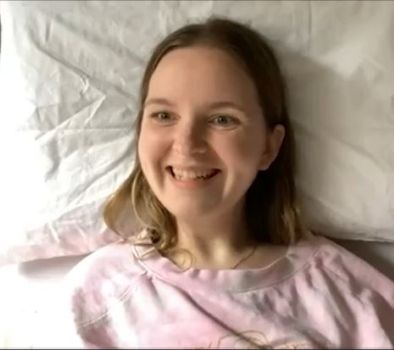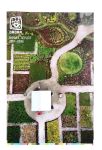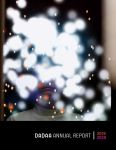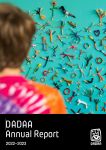Items
Search full-text
Art of Difference
-
 "Interview with Jess Cochran" Jess Cochran (they/them) is an actor, model, writer and disability advocate. Interview Summary: Jess Cochran is a queer, non-binary, neurodivergent, performing artist, advocate, writer, and consumer consultant with a background in both physical and psychosocial disabilities. Their journey into the performing arts began accidentally with a role in the Awards winning Melbourne Fringe Festival production, Qualia, which opened doors to more local and international Awards-winning work in film and stage. Jess identifies proudly with their disabilities and considers their art both a personal expression and a political act aimed at highlighting the issues faced by the disability community. Jess’s work spans across writing, modelling, and various performance arts, and they wish to see an increase of disability arts representation in mainstream media with authentic casting, opportunities and improved accessibility for disabled performers. Jess is also passionate about highlighting intersectionality in disability arts.
"Interview with Jess Cochran" Jess Cochran (they/them) is an actor, model, writer and disability advocate. Interview Summary: Jess Cochran is a queer, non-binary, neurodivergent, performing artist, advocate, writer, and consumer consultant with a background in both physical and psychosocial disabilities. Their journey into the performing arts began accidentally with a role in the Awards winning Melbourne Fringe Festival production, Qualia, which opened doors to more local and international Awards-winning work in film and stage. Jess identifies proudly with their disabilities and considers their art both a personal expression and a political act aimed at highlighting the issues faced by the disability community. Jess’s work spans across writing, modelling, and various performance arts, and they wish to see an increase of disability arts representation in mainstream media with authentic casting, opportunities and improved accessibility for disabled performers. Jess is also passionate about highlighting intersectionality in disability arts. - Julia McHale
- Josh Lennox
- John Tonso
- Jocelyn Lee
- Joceline Lee
- Jennifer Justice
- Jackie Saunders
- Grace Bell
- Eve Kitchener
- Eden Menta
- Dionne Canzano
- Dione Canzano
- Charlie Taplin
- Carly Findlay
- Bryan Phillips
- Boram Lee
- Banjobe Hunt
- Anna Seymour
- Angharad Butler-Rees
- Alice Green
- Alan Constable
-
 "DADAA Annual Report 2017-2018" DADAA Annual Report 2017-2018 - Chairperson and Executive Director’s Reports, New premises, NDIS, Workshops, Exhibitions, Galleries, Online Gallery, Art Link Programs, Arts Access Australia International Forum, Nexus Arts Grants, Professional Mentorships, Financials
"DADAA Annual Report 2017-2018" DADAA Annual Report 2017-2018 - Chairperson and Executive Director’s Reports, New premises, NDIS, Workshops, Exhibitions, Galleries, Online Gallery, Art Link Programs, Arts Access Australia International Forum, Nexus Arts Grants, Professional Mentorships, Financials -
 "DADAA Annual Report 2019-2020" DADAA Annual Report 2019-2020 – Chair’s and Executive Director’s Reports, People, Partners, Art Services, New Gallery, Projects including ‘No Fixed Address’, NDIS, Covid19 and digital transitions, Financials
"DADAA Annual Report 2019-2020" DADAA Annual Report 2019-2020 – Chair’s and Executive Director’s Reports, People, Partners, Art Services, New Gallery, Projects including ‘No Fixed Address’, NDIS, Covid19 and digital transitions, Financials -
 "DADAA Annual Report 2022-2023" DADAA Annual Report 2022-2023 – Chair’s and Executive Director’s Reports, People, Partners, Arts and Client Services, Projects including 4:48 Psychosis, Digital Art for Life, Exhibitions, Financials
"DADAA Annual Report 2022-2023" DADAA Annual Report 2022-2023 – Chair’s and Executive Director’s Reports, People, Partners, Arts and Client Services, Projects including 4:48 Psychosis, Digital Art for Life, Exhibitions, Financials
